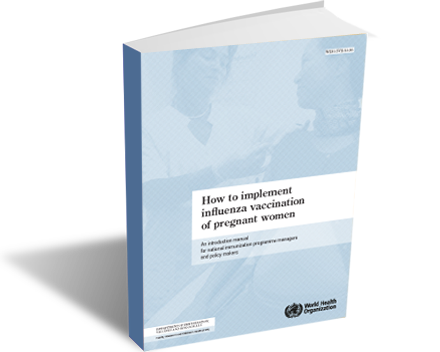Getting started
Modules
The modules introduce you to maternal immunization issues and provide you with the technical information required to look at the case studies and take the assessments.
This course is divided into two parts: decision-making at country level as well as planning and implementing the vaccine introduction. The decision making section primarily aims at policy makers; whereas the planning, training and communication, and monitoring and evaluation sections aim to support national immunization programme managers and immunization partners.
This training course can be taken as a whole or specific modules can be viewed, depending on the information requirements of the user. Each module will take you about 1½ hours to complete but you may find that it takes you a little more or a little less time than this. You can study this course at your own pace, pausing your learning at any point.
You will optimally benefit from the course by following the training path illustrated below. You have the opportunity to take training questions within the module to ensure an interactive learning experience.
Considerations for maternal influenza vaccination for policy makers and implementers

|
|
|
|
Country Experience
Five country experiences enable you to see how specific counties have been able to successfully implement maternal influenza programs. These countries include Thailand, Maharashtra India, Moldova, Sri Lanka, and Malawi.
Supplementary tools
Supplementary tools include:
- Search functionality,
- Navigation tools orient enabling you to quickly access information,
- Additional sources of information on the web.
Send us feedback
Let us know how we can improve the training course. Click here to send us your comments.
Technical requirements
Acknowledgements
This course is based on implementation manual was written, informed and reviewed by the following individuals.
Contributors
Edwin Asturias, Susan Chu, Supamit Chunsuttiwat, Jessica Fleming, Francois Gasse, Yirgu Gebrehiwot, Gretchen Heinrichs, Terri Hyde, Osman David Mansoor, Jean-Marc Olive, Carla Vizzotti, Susan A. Wang.
From WHO: Dicky Akanmori, Oleg Benes, Maurice Bucagu, James Heffelfinger, Joachim Hombach, Shin Jinho, Pernille Jorgensen, Gunta Lazdane, Philipp Lambach, Assumpta Muriiti, Justin R Ortiz, Alba Maria Ropero-Alvarez, Arun Bhadra Thapa, Özge Tuncalp, Pushpa Ranjan Wijesinghe, Ahmadu Yakubu.
Overall coordination
Philipp Lambach
Reviewers
Eduardo Azziz-Baumgartner, Barbara Jauregui, Nathalie Likhite, Meredith McMorrow, Clint Pecenka, Flor M Munoz, Pierre van Damme, Laura Elizabeth Riley, Stefano Tempia, Margaret Watkins, Gerd Zettlmeissl, and the WHO Immunization Practices Advisory Committee (IPAC).
From WHO: Jhilmil Bahl, Nyambat Batmunkh, Madhava Ram Balakrishnan, Terry Besselaar, Paulus Bloem, Adam L. Cohen, M. Carolina Dan- ovaro, Philippe Duclos, Rudi Eggers, Godwin Enwere, Julia Fitzner, Marta Gacic-Dobo, Tracey Goodman, Carmen Rodriguez Hernandez, Siddhivinayak Hirve, Raymond Hutubessy, Souley- mane Kone, Olivier Lapujade, Patrick Lydon, Carsten Mantel, Claudio Politi, Stephanie Mariat, Melanie Marti, Gill Mayers, Lisa Menning, Liudmila Mosina, Leopold Ouedraogo, Marc Perut, Andreas Reis, Kamel Senouci, Erin Sparrow, Patrick Zuber, Wenqing Zhang, Weigong Zhou.
We would like to acknowledge the contributions of the Centers for Disease Control and Prevention (CDC), which provides financial support to the World Health Organization Initiative for Vaccine Research (U50 CK000431).


